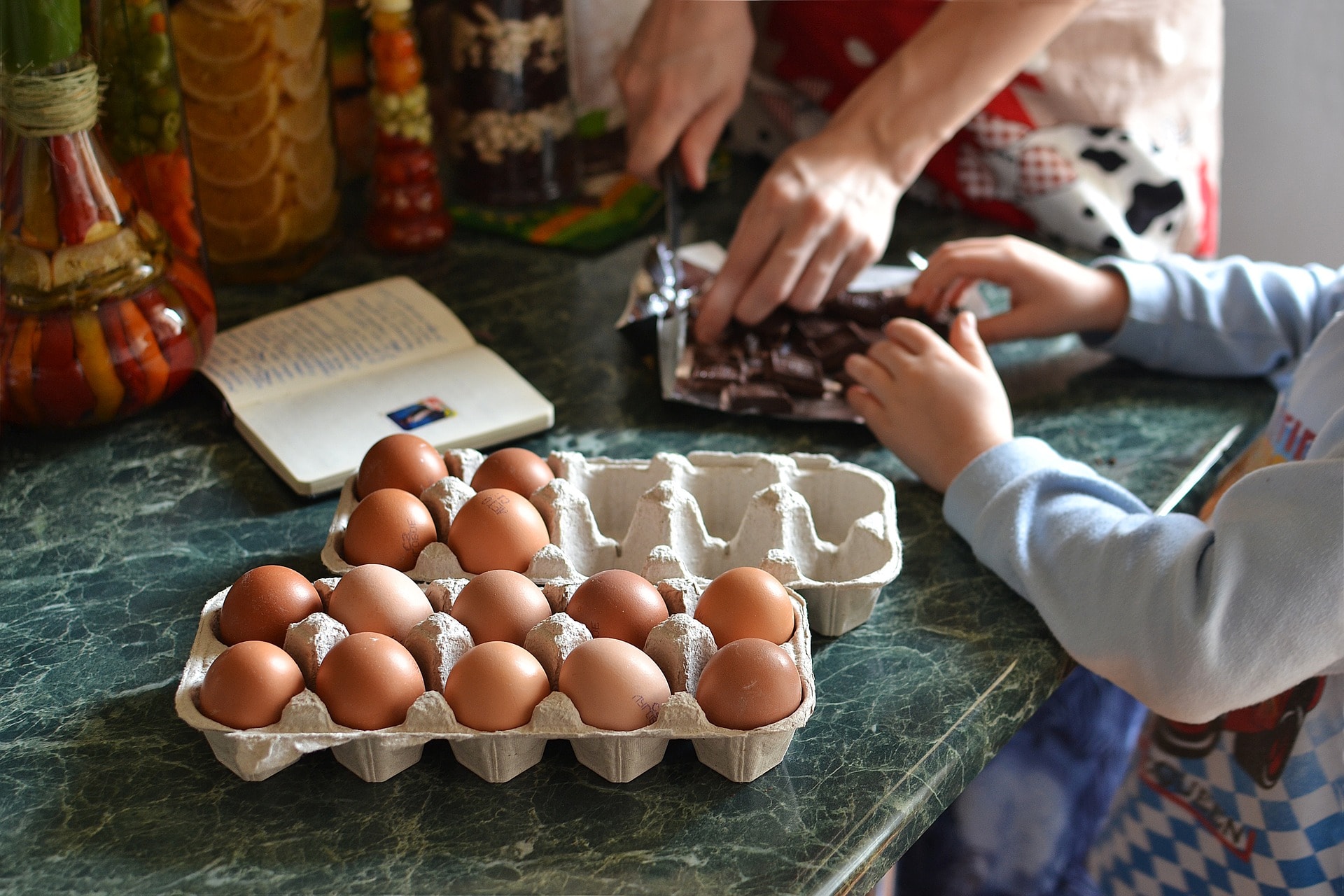Cooking can be one of the most rewarding hobbies to have. Learning to cook at a young age encourages children to try new flavours and foods, and will serve them well in later life if they can create healthy, tasty meals. It can also be a fun way to teach kids about different cultures and countries by trying out recipes from around the world. But how can you safely get little ones involved in the kitchen?
Recipe Kits
Recipe kits are a great way to try new foods. You don’t have to buy a whole load of ingredients that will languish at the back of the cupboard for the rest of time, and instead get everything you need in an easy kit. For cooking with kids, experimenting with new foods can be a great way to spark their interest. You could buy a kit to cook something simple, like a stir-fry, or try out a more specialist recipe, like bao buns. If it turns out the recipe isn’t for you, just don’t buy that kit again, and you haven’t wasted any ingredients or spent hours crafting a dish that doesn’t work.
Teach Them Family Favourites
Do your kids have favourite foods? Get them involved in the creation of family favourite recipes. This can be a fun learning curve for you too, if you create recipes you usually buy ready made from scratch. Learn to make your own meatballs for spaghetti as a family. Make pizza dough and let the kids go wild choosing their own toppings. Make burgers from scratch for a summer barbecue.
The children will enjoy making the things they already love to eat, and you get extra peace of mind, knowing exactly what into the meal you’re giving your family.
Make It A Game
It’s sneaky, but turning dinner into a game might encourage more reluctant kids to get involved. Set yourself a challenge to try something new as a family on a regular basis, whether that’s choosing an unfamiliar vegetable at the supermarket to include in dinner, or getting out all Grandma’s recipe books to choose a 70s classic dinner party recipe that makes you laugh. If it doesn’t work out, you’ve got a fun family memory anyway.
Let Them Choose
Food shopping isn’t most kids’ idea of a good time, but try and encourage them to help you shop. Tell them they can help you choose the food to turn into that week’s meals. What appeals to them? Kids are very drawn to colour, so asking them to pick out fresh fruit and veg that catches their eye is a great trick to get them to think about healthy foods and not just choose sweets and crisps.
Let them help you meal plan for the week too. For smaller children, offer them a few options to choose between, and give them more options are they get a bit older. Start a binder of family favourite recipes that the kids can add things to as you try new things.
Be Patient
Try and be patient and not rush the kids if they’re trying to help. It might make dinner prep slower, but remember you’re teaching them valuable skills. Safe knife skills, working from recipes and meal planning are excellent life skills that your kids will use for years to come.
If you’re asking the kids to help, leave plenty of time to cook, and just relax. Turn up the kitchen radio, teach them new things and enjoy the quality family time you’re spending together.
Find A Task For Everyone
Even very young children can get involved in cooking, starting them with a healthy relationship with food from an early age. Give everybody a job that’s age appropriate, and the little ones can look forward to getting to try out new tasks when they’re old enough.
Small children can fetch things from the fridge, tear lettuce for salad, set the table or help with washing vegetables. As they get older, you can begin teaching basic knife skills with soft foods, and gradually work up to sharper knives for more challenging techniques. Teach young children to crack eggs, and work up to separating an egg. Older kids can take part in the actual cooking, once they’re responsible enough to be safe with a hot oven or hob.
Adding new skills to their repertoire as they age, means that by the time they’re teenagers, your kids will have a good knowledge of cooking. You might even be able to leave them in charge of dinner and take a night off yourself!
Embrace The Mess
Your kitchen getting into a mess is properly inevitable when you start cooking with little ones, so it’s best to lean into it. Many kids might actually love a good mess, so why not give them a fun, messy task? Small children might like mashing soft foods like avocado. Older kids can get mucky with hands on tasks like shaping meatballs.
You can also take the opportunity to teach kids about food safety and kitchen cleanliness. In professional kitchens, chefs clean as they go. Pretend you’re on the line in a restaurant and teach your kids how to keep surfaces clear as they prep. They can learn about which foods to keep separate, how to safely clean food prep areas and how to safely save leftovers to be eaten on another day.
Tidying the kitchen is a good task for younger kids too. They can help with washing or drying up, or putting everything back into the cupboards after dinner.
Make Them Feel Important
Appeal to your kids’ confidence and make them feel like an important cog in your kitchen machine. Ask them to taste things as you’re cooking and ask what they think. This can help them develop their palate and you can begin to teach them how to tell if a dish needs more salt, spice or other seasoning. Ask them to help you choose recipes or ingredients. Plan menus on a theme that fits with their school studies.
If they show an interest in cooking, reward them with their own apron or a set of kitchen tools of their own. This could be colourful measuring cups for little ones, or a set of knives for older kids. You’ll have your own little sous chef in no time.
Nb. Collaborative post.






Leave a Comment